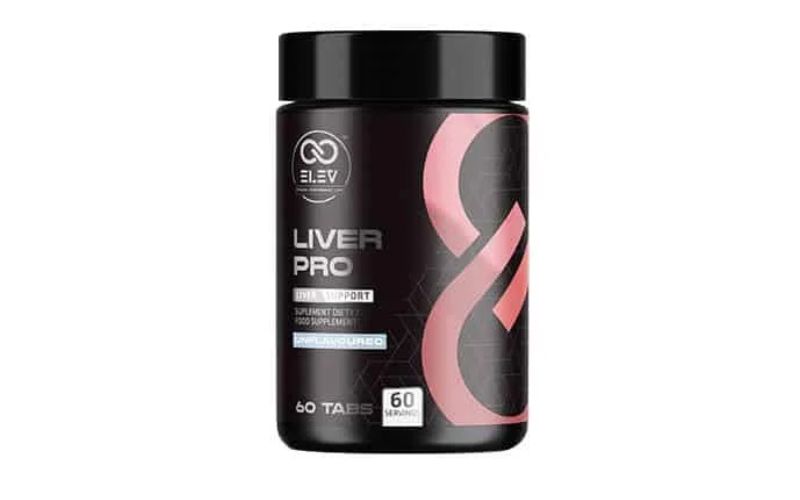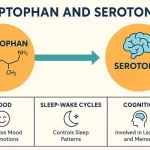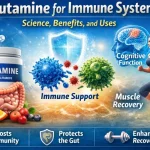Nutrition is the science that examines how food and drink influence the overall functioning of the body. A well-balanced diet is not only about maintaining an ideal weight but also about fueling the body to perform at its best. From physical health to mental clarity, immune function, and disease prevention, nutrition plays a crucial role in every aspect of our well-being. Poor dietary habits, on the other hand, can lead to a range of health problems, highlighting the importance of making conscious choices about what we eat.
Table of Contents
What is Nutrition and Why is it Important for Health?
Nutrition encompasses the intake of various nutrients from food, which are essential for maintaining bodily functions and supporting health. It includes macronutrients like proteins, fats, and carbohydrates, which provide energy, as well as micronutrients such as vtamins and minerals, which regulate body processes.
- A balanced diet provides the nutrients necessary for growth, repair, and energy.
- Macronutrients serve as energy sources, while micronutrients are key in supporting metabolic functions, immune health, and cell repair.
- Achieving a proper balance ensures that the body can efficiently perform daily tasks, fight off diseases, and stay healthy.
A well-rounded diet is integral to maintaining health and preventing nutritional deficiencies. It provides the building blocks for strong immunity, optimal physical performance, and overall longevity.
The Link Between Nutrition and Chronic Diseases
Poor nutrition is closely linked to the development of chronic diseases such as heart disease, diabetes, and obesity. Consuming high amounts of processed foods, unhealthy fats, and sugars over time can lead to conditions like hypertension, insulin resistance, and inflammation.
- A diet rich in fruits, vegetables, whole grains, and lean proteins can help manage cholesterol levels and blood pressure.
- Nutrient-dense foods promote heart health and support weight management by providing essential nutrients without excess calories.
- Research consistently shows that good nutrition helps in both the prevention and management of chronic illnesses, reducing the risk of complications over time.
Incorporating healthier food choices into daily life significantly lowers the risk of chronic diseases and enhances long-term health.
How Nutrition Influences Your Immune System
The body’s immune system relies heavily on nutrition for optimal functioning. Nutrients like vitamin C, vitamin D, and zinc are particularly important in strengthening immune defenses and supporting recovery from illnesses.
- Nutrients like vitamin A, C, E, and zinc act as antioxidants, helping to reduce oxidative stress and inflammation.
- Protein plays a key role in the production of immune cells, which are essential for fighting infections.
- A lack of essential vitamins and minerals can impair the immune system, making the body more vulnerable to infections and slower to recover.
Maintaining a diet that includes immune-boosting nutrients is a proactive way to protect the body against illnesses and ensure quicker recovery when sick.
Nutrition’s Role in Mental Health and Brain Function
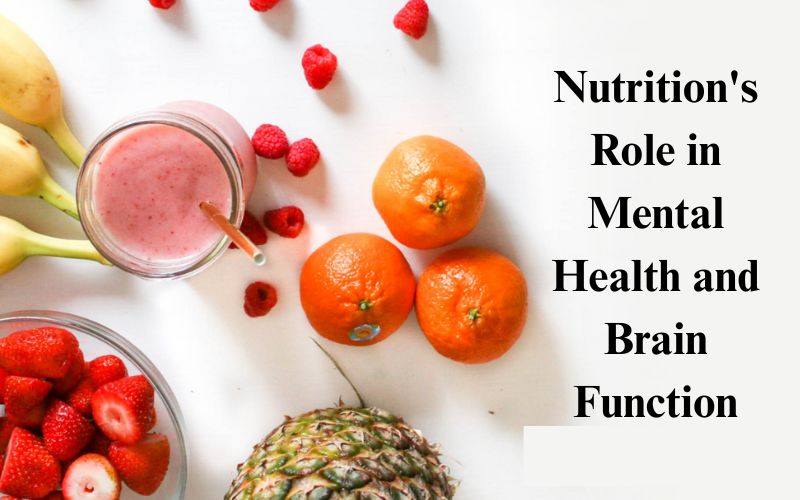
Nutrition also plays a significant role in mental health and cognitive function. Research suggests that certain nutrients, such as omega-3 fatty acids, B vitamins, and antioxidants, are vital for brain health, mood regulation, and cognitive clarity.
- Omega-3 fatty acids, found in fatty fish and flaxseeds, help maintain brain structure and function, supporting memory and focus.
- Vitamins like B6, B12, and folic acid contribute to neurotransmitter production, which influences mood and mental clarity.
- Poor nutrition, including deficiencies in essential nutrients, can lead to mental health issues such as depression, anxiety, and cognitive decline.
A well-balanced diet can improve brain function, enhance memory, and boost overall mental well-being.
The Importance of Hydration for Overall Health
Water is essential for various bodily functions, including nutrient absorption, detoxification, and maintaining healthy cellular processes. Staying properly hydrated ensures that the body performs efficiently, and it is crucial for both physical and mental health.
- Adequate hydration is vital for nutrient transport, ensuring that vitamins and minerals are delivered to cells.
- Dehydration can lead to fatigue, dizziness, impaired cognitive function, and skin dryness.
- Drinking sufficient water supports digestion, kidney function, and even cognitive clarity.
Hydration is often overlooked, but it is a fundamental aspect of overall health. Drinking enough water daily promotes proper bodily function and enhances energy levels.
The Impact of Different Diets on Health (e.g., Mediterranean, Plant-based, Keto)
Various dietary patterns offer distinct health benefits, depending on your individual goals and needs. Diets like the Mediterranean, plant-based, and keto have been extensively studied for their positive effects on health.
- The Mediterranean diet emphasizes whole foods, healthy fats, and lean proteins, supporting heart health and longevity.
- Plant-based diets, rich in fruits, vegetables, and legumes, reduce the risk of chronic diseases like heart disease and cancer.
- The ketogenic diet, which focuses on low-carbohydrate, high-fat foods, is known for its benefits in weight loss, metabolic health, and epilepsy management.
Each diet has its own advantages, and choosing the right one can depend on health objectives, lifestyle, and personal preferences.
How Nutrition Affects Energy Levels and Physical Performance
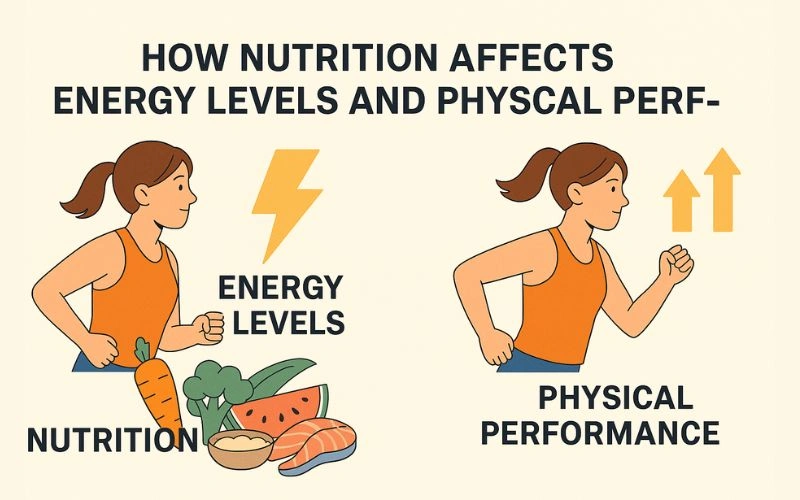
Proper nutrition is key to maintaining high energy levels and optimal physical performance. Athletes and active individuals rely on specific nutrients to fuel their workouts, support muscle recovery, and enhance endurance.
- Carbohydrates are the primary source of energy for muscles during physical activity.
- Proteins are necessary for muscle repair and growth after exercise.
- Fats provide sustained energy during long-duration activities and help in the absorption of fat-soluble vitamins.
By fueling the body with the right balance of nutrients, athletes and everyday individuals alike can improve their stamina, performance, and recovery time.
The Connection Between Nutrition and Skin Health
Nutrition plays an important role in maintaining healthy, glowing skin. Essential vitamins, minerals, and antioxidants help protect the skin from environmental damage, reduce signs of aging, and promote a youthful complexion.
- Antioxidants like vitamin C and E protect the skin from oxidative damage, preventing premature aging.
- Healthy fats, such as those found in avocados and nuts, keep the skin moisturized and promote a glowing complexion.
- Adequate hydration supports skin elasticity and prevents dryness and irritation.
Including nutrient-dense foods in your diet can have a significant impact on skin health, keeping it looking fresh and youthful.
The Role of Nutrition in Weight Management
Nutrition is the cornerstone of healthy weight management. A balanced diet provides the nutrients your body needs while ensuring that you’re not overconsuming calories, which is essential for maintaining a healthy weight.
- A diet rich in whole foods, lean proteins, and fiber can support weight loss by increasing satiety and reducing calorie intake.
- Nutrient-dense foods help boost metabolism, supporting fat loss and muscle maintenance.
- Understanding portion sizes and caloric intake is crucial for weight management, as eating in moderation is key to maintaining a healthy weight.
Rather than focusing on restrictive diets, a balanced approach to nutrition is more effective for long-term weight management.
Practical Tips for Adopting a Healthier Diet
Making healthier dietary choices requires planning and mindfulness. The key is to make small, manageable changes to your eating habits rather than drastic overhauls.
- Start by including more fruits, vegetables, whole grains, and lean proteins in your meals.
- Limit processed foods, sugary drinks, and high-fat snacks that provide little nutritional value.
- Plan your meals ahead of time to ensure you’re eating balanced, nutrient-dense foods throughout the day.
By gradually adopting these changes, you can create lasting habits that promote better health.
Conclusion:
Nutrition is one of the most influential factors in maintaining good health. From supporting immune function to improving mental clarity, skin health, and overall well-being, the food we consume directly impacts every part of our body. By understanding the importance of balanced nutrition and making informed dietary choices, we can improve our health, prevent chronic diseases, and lead healthier, more fulfilling lives.















